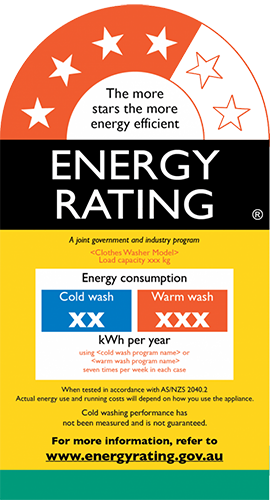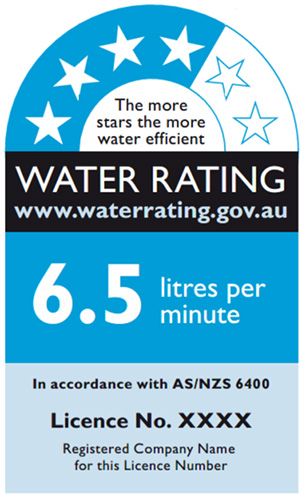Energy Coach - July
It's here - we're in the middle of winter, and most of us are feeling the chill, as well as the pain of high energy bills. Here's our roundup of what you can do to shrink your bills while keeping your home's comfort levels high.
Wet appliances like washing machines can be energy hogs. Here's everything you need to know to choose an efficient new machine, and how to maximise efficient use for your current machine

Washing machines are long-term investments. Your washer can easily be with you for 10 or more years, so to minimise the lifetime costs, it's important to start on the right foot by choosing a machine with a good efficiency star rating.
But you only get to choose that new washing machine once in a blue moon. No matter what kind of machine you have, you should also learn how to use it as efficiently as possible.
In this article we'll cover both choosing a new machine, and maximising efficiency for your current machine. Before we do, here's a word from our sponsor

Not a subscriber yet? What are you waiting for! Never overpay for energy again! Bill Hero automatically compares every bill to help keep you always on the best priced plan.
Wet appliances like washing machines and dishwashers can account for about 14% of a typical energy bill. They usually will use power to heat the water, which pushes up energy consumption, making them among the greediest household appliances.
Actively choosing to wash clothes at a lower temperature, or better still in cold water, will significantly reduce your energy consumption.
Also, a shorter washing cycle will minimise wear and tear on your clothes while minimising the expense.
Wait until you've got a full load of dirty washing before running the machine—it costs the same amount of water and energy to run the machine for a full load as it does for a half-load, so be efficient and wait until there's a whole load to wash.
The same advice goes for your dishwasher: use the Eco setting if it has one, and wait until it’s full before starting it.
It makes the best sense to wash your clothes when its possible to dry them afterwards—ideally if you can wash them in the morning, then you have the rest of the day to air-dry your clothes, which is absolutely free.
If you need to use a dryer, try to time it so the heat from the dryer can contribute towards heating your home, like in the evening in winter. That way, you'll get some heating benefits as well as drying.
When shopping for a new washing machine, you should look for the most energy- and water-efficient option that fits your price range and meets your requirements for load size.
Your first choice is the basic style of the machine — top-loader or front-loader? — and the capacity. Washing machine load-size capacities can range from 5kg to over 18kg.
Bigger capacity means you'll be able to fit more clothing in a single wash, but the machine will be physically larger, it will be more expensive, and it will use more energy and water.
This choice may be made for you based on the physical location where your machine will be installed, but it still makes sense to consider the options.
Front-loading washing machines generally cost more than top loaders, but they perform better and use less water and energy. The mechanical cleaning action for this kind of machine is to tumble your washing over and over gently — the rotating drum repeatedly picks up your wet washing, and gravity drops it back down into the wash water.
This front-loader action is gentle on clothes and is better for handling unbalanced loads. They usually have faster spin cycles, which means less drying time will be needed.
Front-loader wash cycles generally take longer than a top loader, because they use less water.
Top-loaders are generally cheaper, weigh less and wash faster than front loaders, but they use a lot more water, are rougher on your clothes and usually don't wash nearly as well.
The core action for top-loader machines is to float your clothes in a large bath of water, and use an impeller or agitator to move them about and wash them.
The Energy Star rating system allows you to compare the appliance's efficiency easily. For 'wet appliances' such as washing machines, the star ratings cover both water consumption and energy efficiency and this information is represented on separate labels
The energy rating label helps you compare different washing machines' energy efficiency and running costs.

Every extra star can save you 25% of your washing machine’s energy use on a warm cycle. The more stars, the more energy efficient your washing machine will be, and the lower the running costs.
As a general benchmark, you should buy a washing machine with at least a 3.5 star energy rating and 4 star water rating. Get a higher rating if you can afford it.
Some washing machine labels have a blue box, displaying annual energy consumption when used once per day on the cold wash cycle. Over 80% of the energy a washing machine uses goes to heating the water, so washing machines use less energy on the cold wash cycle.
In Australia, the Water Efficiency Labelling and Standards scheme requires that washers must also display a Water Rating Label.
The scheme was established in 2005 to encourage more efficient domestic water use and reduce demand for drinking water in Australia by informing consumers about water efficiency. It regulates taps, showers, toilets, urinals, flow controllers, dishwashers and washing machines.

The star rating shows the water efficiency of the product — the more stars, the more water efficient the product is.
Savings as a Service is the blog site and newsletter from Bill Hero. Subscribe now and get your energy savings tips and information delivered fresh to your inbox every month.